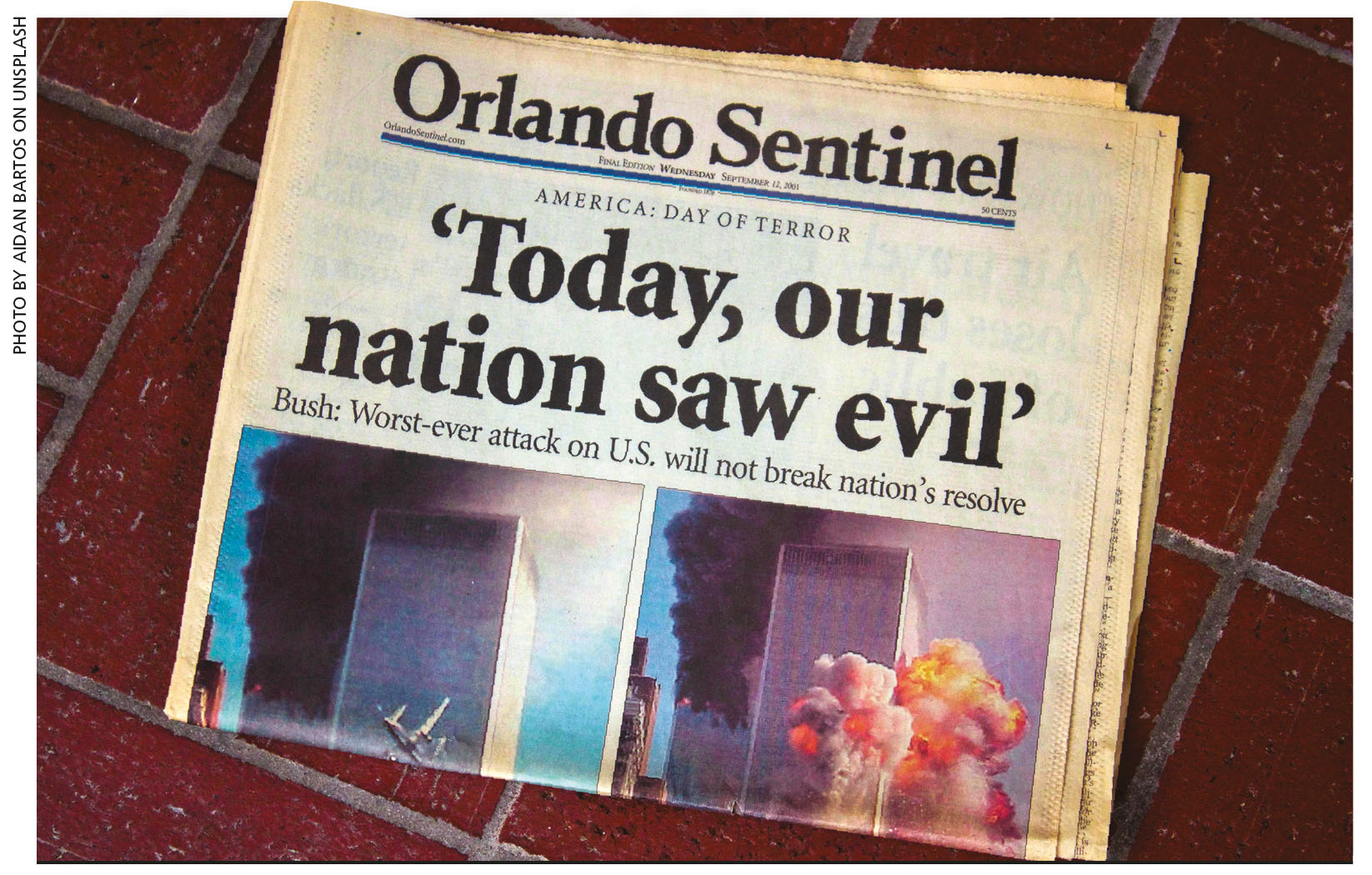THE ROVING DIPLOMAT
TRIBUTE series
NOVEMBER 2001
THE IRON GRIP OF TERROR
A holy war against the US and America’s 9/11 vow to seek vengeance
On 11 September 2001, the world nosedived into a crisis without a parallel in the history of civilisation. The Economist very aptly described the event as “the day that the world changed.” This day’s universal significance lies in its unique character and circumstances as an act of hostility against a state.
It was unprecedented for its totally unexpected character, which was a shattering blow to the much vaunted prestige of US security and America as a global superpower. In addition to the loss of innocent lives, the main casualty was the image of the United States in the eyes of the world.
This attack also awakened civilisation to its inherent vulnerability to the arcane forces of destruction, which it had devised and provided a frightening demonstration of the threat posed by international terrorism globally. While in this case, the chosen victim was the US, it was also a declaration of war on the world at large.
The reactions in America by its government and the people were understandably hysterical since it was a blow to their pride, and highlighted inadequate security. The US’ response was a declaration of the ‘war on terror.’ In an attempt to regain prestige, both President George W. Bush and other leaders stateside remained defiant and expressed determination to wreak vengeance on those concerned.
Speaking to journalists at the White House, Bush called the attacks “acts of war.” He said: “We will lead the world to victory. This country will not relent until we have saved ourselves and others from the terrible tragedy that came upon America.” This seemed to be an invitation to the international community to join the US president in the proposed war – and initially, there was a favourable response.
NATO members committed resources to a joint military response while Russia and China pledged their support to fight terrorism. The EU promised its support and said that its members would help bring to justice those responsible. World leaders who rallied in a show of solidarity with the US included President Jacques Chirac of France and British Prime Minister Tony Blair.
Later in 2004, after a Japanese national had been killed in Iraq, Japanese Prime Minister Junichiro Koizumi stated that Japan would “resolutely fight against terrorism.”
The thinking at this stage seemed to favour an all-out war by the US and its allies against terrorism, which in this case meant targeting the Taliban and Al-Qaeda leader Osama bin Laden in Afghanistan. A key factor was logistical and other support from Islamic countries; and initially, it seemed as if this would be forthcoming from a number of Arab states.
However, their attitudes changed, presumably in the face of opinions expressed in the West that the proposed war would be a jihad against Islam itself – a sentiment that would have been distasteful to the Muslim world.
This can be seen in the latest position adopted by countries like Iran and Saudi Arabia where they have refused to let the US use their land as bases for American forces in the event of war.
There has also been opposition in Muslim countries to the plans announced by the United States for an all-out war. This has raised the spectre of a religious conflict between the West and the Islamic world, which is scarcely what the Americans wish for at this juncture.
In the light of these developments, there has been a change of strategy by the US. The Americans have decided to abandon plans for all-out bombing raids on Afghanistan especially because of the inability to identify specific Taliban strongholds. Instead, the United States is proposing to undertake an operation in Afghanistan where US troops would be deployed to link up with anti-Taliban groups in that country.
The Western world is still gripped by fear, and this panic is justified to an extent due to the skill and daring of the terrorist attacks of 9/11. Also, the wide network of terrorist organisations uncovered in the US and elsewhere suggest plans for subver-sion on a large scale.
Because the terrorists were Muslims, the attacks have justified the view that they represent a holy war against the US and reflect a hostile reaction to the latter’s policies in the Arab world especially Palestine.
This fear of provoking a holy war may have justified the American decision to call off its initial plans for an all-out war. What’s feared is that this has added a racial division to the world in addition to prevailing ethnic, social and economic divisions, and created a new Cold War.
BY The late Deshamanya Dr. Vernon L. B. Mendis




